Sign up for breaking news, reviews, opinion, top tech deals, and more.
You are now subscribed
Your newsletter sign-up was successful
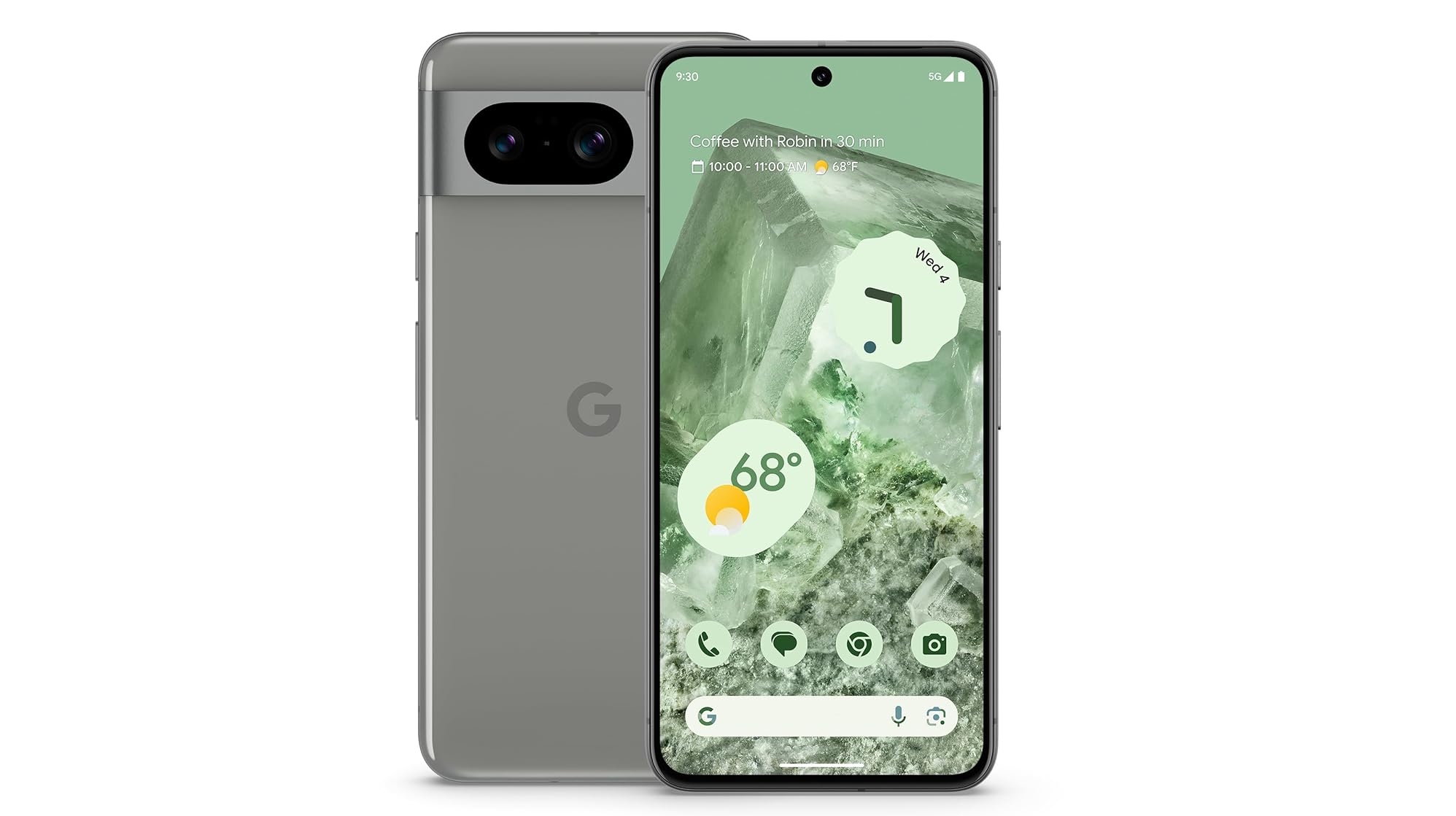
Weight: 187g
Dimensions: 150.5 x 70.8 x 8.9mm
Screen size: 6.2-inch
Resolution: 1080 x 2400
Chipset: Google Tensor G3
RAM: 8GB
Storage: 128GB/256GB
Battery: 4,575mAh
Rear camera: 50MP+12MP
Front camera: 10.5MP
The Google Pixel 8 has most of the core features of the Pixel 8 Pro, including AI tricks, a 50MP main camera, a Tensor G3 chipset, and a 120Hz screen. But it lacks a telephoto camera, and its screen and battery also aren't quite a match for Google's top phone.
Pros
- New Tensor chip
- Refreshed design
- AI camera tricks
Cons
- Design changes are minor
- Minimal camera upgrades
- No temperature sensor
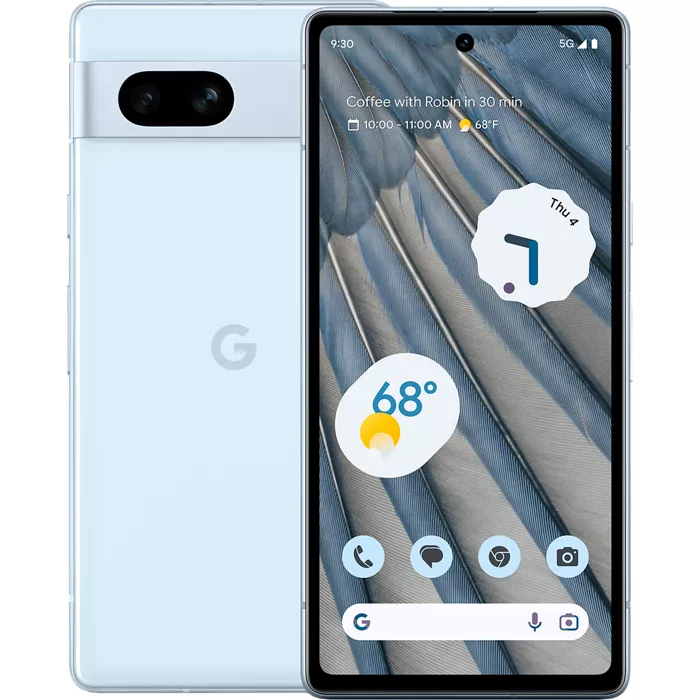
Dimensions: 152 x 72.9 x 9mm
Weight: 193.5g
Display: 6.1-inch (1080 x 2400) 20:9 90Hz OLED
Chipset: Google Tensor G2
RAM: 8GB
Storage: 128GB
Rear camera: 64MP (main) +13MP (ultra-wide)
Front camera: 13MP
Battery: 4,385mAh
Charging: 18W wired, 7.5W wireless
The 7a is like a gas-guzzling roadster. It's faster than it should be, looks great in photos, and needs to be refueled often along the way. Also, the launch price is too high and too close to the rest of the Pixel 7 range.
Pros
- Almost as fast as the Pixel 7 Pro
- Great photo capabilities and editing tools
- Slick Android interface is a pleasure
Cons
- Battery won't last all day
- Only three years of OS update support
- Too expensive given the compromises
The Google Pixel 8 is one of the best compact flagship phones on the market right now, but is it strictly necessary in a world where the Google Pixel 7a exists?
Google really stepped things up with its latest affordable phone just a few months prior to the Pixel 8’s release, offering flagship performance at a mid-market price. The result is that some might well wonder whether they should simply save their money and go with the Pixel 7a.
That’s what we’re here to help with. We’ve used both Google phones extensively, and have offered our thoughts about each in our typically detailed reviews. We’re pretty well placed to offer a detailed comparison, and of course a definitive conclusion as to which Pixel is the best buy for you.
So read on for our verdict of the Google Pixel 8 vs Pixel 7a face-off to see which one is right for you.
Google Pixel 8 vs Pixel 7a: specs comparison
Before we get to an in-depth breakdown of how the Google Pixel 8 and Pixel 7a compare, here’s a brief overview of their key specs.
| Google Pixel 8 | Google Pixel 7a | |
|---|---|---|
| Dimensions: | 150.5 x 70.8 x 8.9mm | 152.4 x 72.9 x 9mm |
| Weight: | 187g | 193g |
| Display: | 6.2-inch 20:9 adaptive 60Hz to 120Hz 'Actua' OLED | 6.1-inch OLED |
| Resolution: | 1080 x 2400 | 2400 x 1080 |
| Refresh rate | Adaptive 60Hz to 120Hz | 90Hz |
| Chipset: | Google Tensor G3 | Google Tensor G2 |
| RAM: | 8GB (LPDDR5X) | 8GB (LPDDR5) |
| Storage: | 128GB, 256GB (UFS 3.1) | 128GB (UFS 3.1) |
| Rear cameras: | 50MP wide, 12MP ultra-wide | 64MP main, 13MP ultra-wide |
| Front camera: | 10.5MP | 10.8MP |
| Battery: | 4,575mAh | 4,385mAh |
| Charging: | 27W wired, 18W wireless (2nd-gen Pixel Stand), 12W wireless (Qi) | 18W wired, 7.5W wireless |
| Colors: | Obsidian, Hazel, Rose | Charcoal, Snow, Sea, Coral |
Google Pixel 8 vs Pixel 7a: price and availability
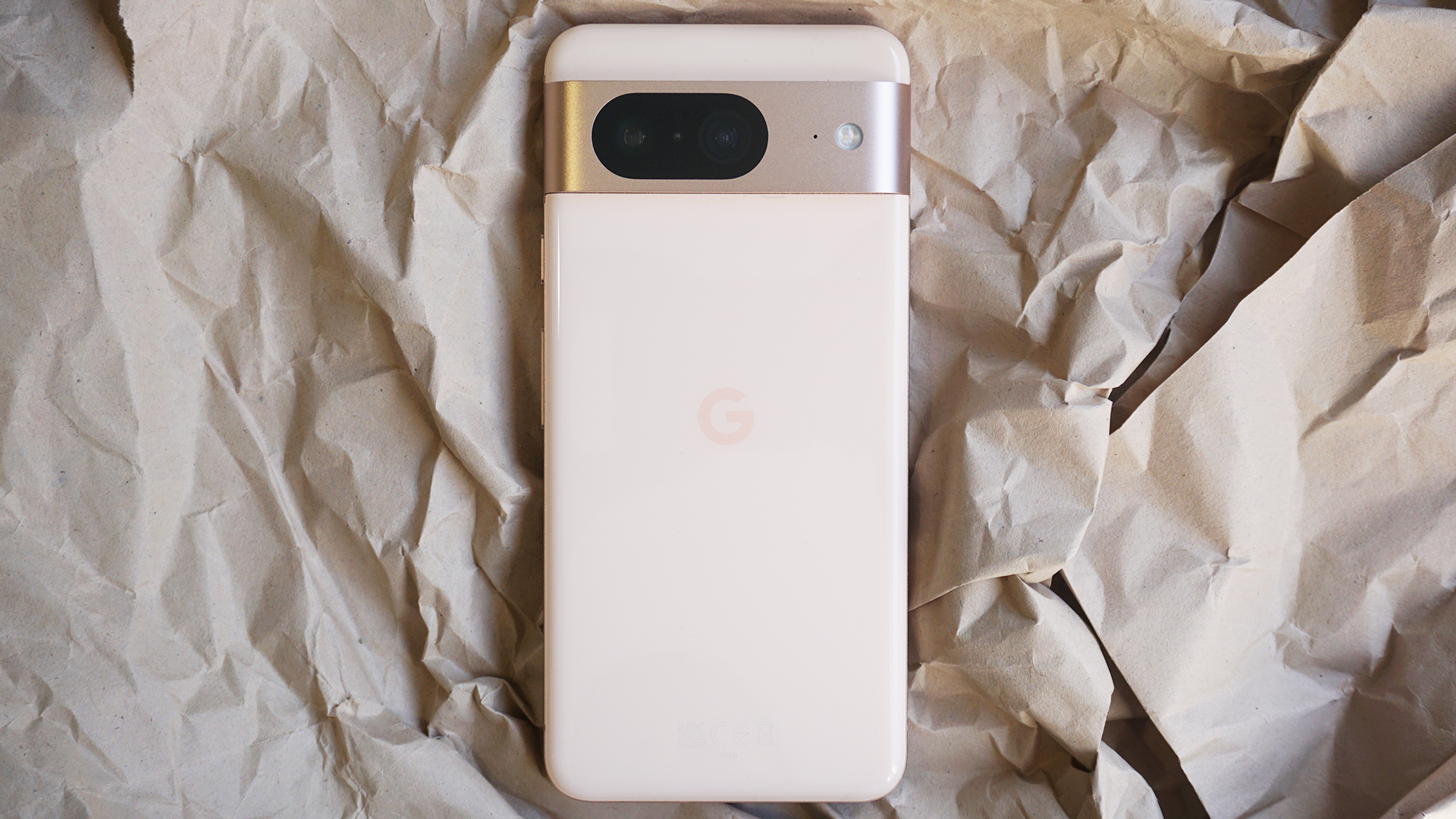
Despite Google’s nomenclature, these two phones were released quite close to one another. The Pixel 7a arrived on May 10, 2023, about five months ahead of the Pixel 8 on October 4 of the same year.
The Pixel 8 starts at $699 / £699 / AU$1,199 for the 128GB model, while upgrading to 256GB will cost you $759 / £759 / AU$1,299.
Sign up for breaking news, reviews, opinion, top tech deals, and more.
You’ll save a lot of money if you go with the Pixel 7a, the sole 128GB model of which costs just $499 / £449 / AU$749.
Comparing like-for-like, that’s a $200 / £250 / AU$450 difference in price. However these two phones stack up from now on, the Pixel 7a has the clear price advantage.
Google Pixel 8 vs Pixel 7a: design and display
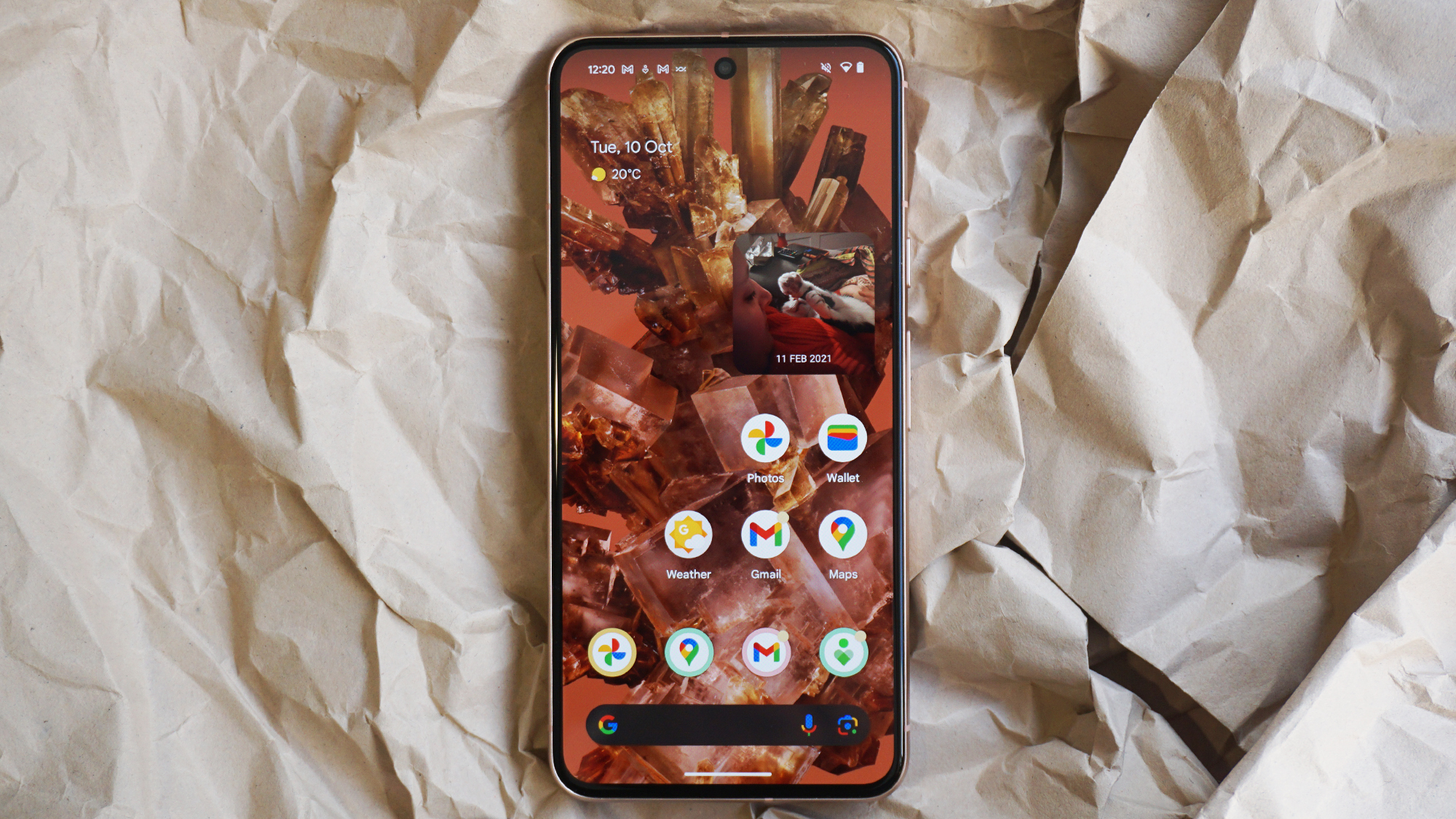
While they’re technically from two different generations, the Pixel 8 and Pixel 7a share a common design language.
The broad strokes are very similar indeed. They’re both compact phones with rounded metal frames and backs, with width-spanning camera modules providing a clear focal point – not to mention somewhere to rest your forefinger on.
Look a little closer at the two phones side-by-side, and the subtle differences start to manifest themselves. That curved back is made from glass on the Pixel 8, and plastic on the Pixel 7a. The curved corners, meanwhile, are rounder and less severe on the Pixel 8, giving it a softer, more inviting look.
Now take a closer look at those signature camera modules. The Pixel 8’s is significantly taller and deeper, and it’s also made from metal rather than plastic on the Pixel 7a. Indeed, the Pixel 8’s camera module is formed of a single piece with its aluminum frame, whereas the Pixel 7a’s plastic module is clearly separate from its own metal body.
The Pixel 8 is slightly more compact in every way, too. There’s only a couple of milliliters and grams in it, but the difference is there. The only exception here is that larger camera module with its more premium construction, which arguably makes the Pixel 8 feel slightly more substantial in the hand.
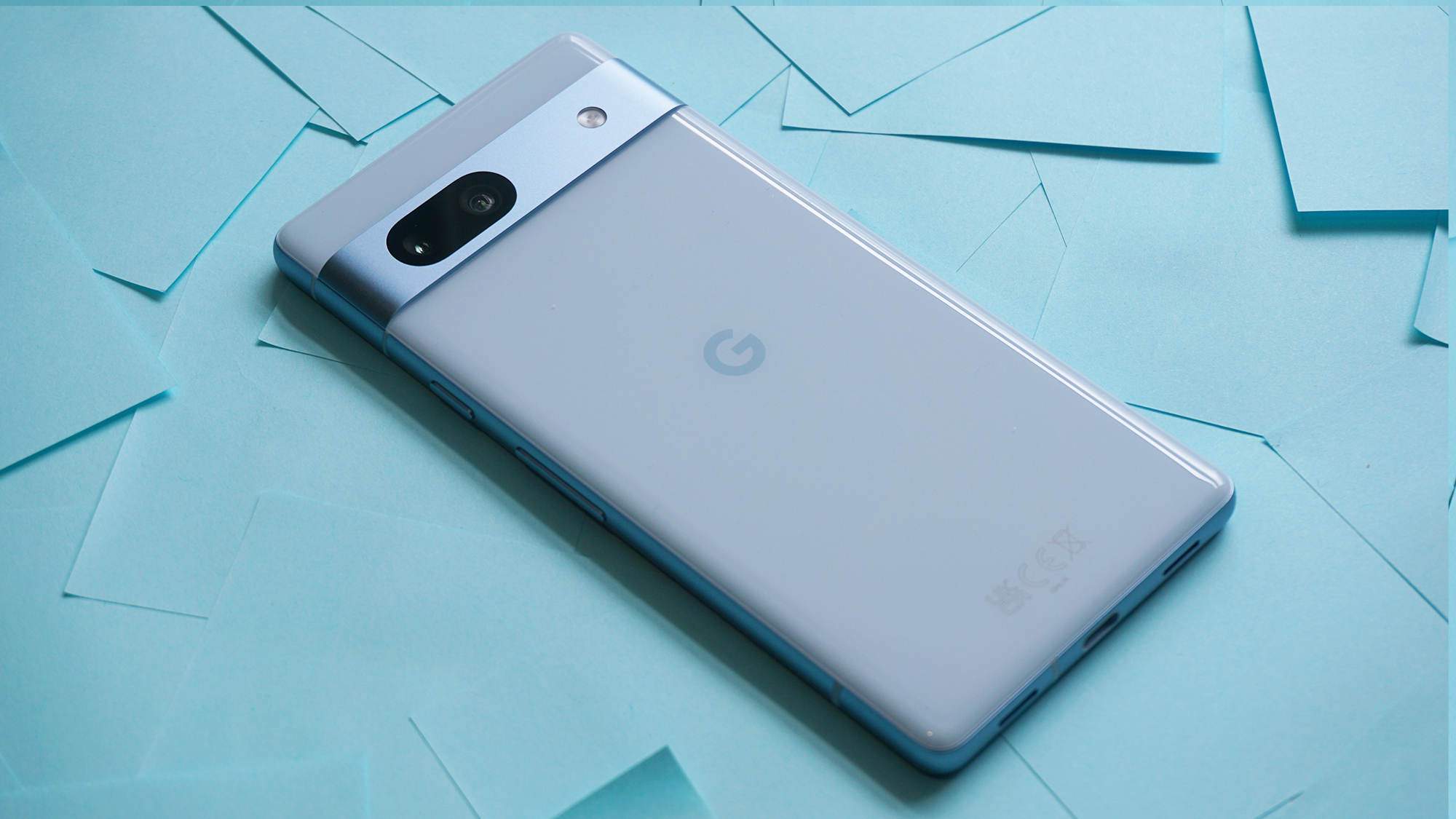
Google’s latest flagship is a little more water-resistant than the Pixel 7a too, with an IP68 rating edging out the latter’s IP67 certification.
Despite being a little smaller, the Pixel 8’s display is actually a little bigger than the Pixel 7a’s at 6.2 inches rather than 6.1 inches. You can thank some slightly whittled down bezels for that trick. The newer phone also uses tougher Gorilla Glass Victus next to the Pixel 7a’s Gorilla Glass 3, making it more scratch-resistant.
Both screens are OLEDs, with punchy colour outputs and 1080 x 2400 (FHD+) resolutions. Beyond that, the Pixel 8 takes a clear lead.
It gets much brighter, for one thing, to the tune of 1,400 nits in high brightness mode and 2,000 nits with HDR content. Google doesn’t share the brightness stats of its Pixel 7a, but it has been figured to be around 1,000 nits in high brightness mode.
The Pixel 8 screen is also significantly smoother than its cheaper and older brother, as its refresh rate can get to 120Hz, while the Pixel 7a can only go to 90Hz.
Google Pixel 8 vs Pixel 7a: cameras
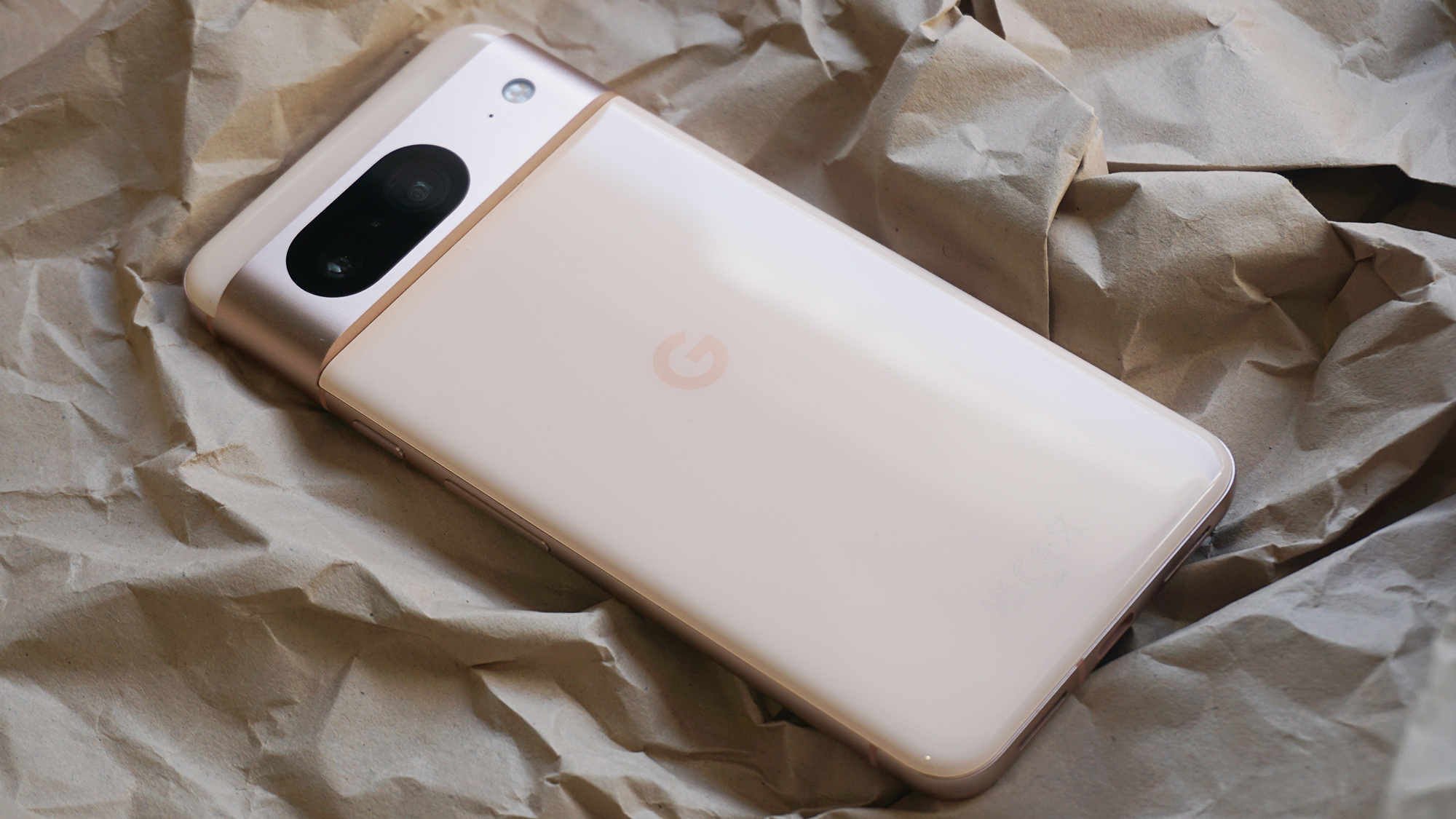
Both of these phones offer solid dual-camera set-ups, but the Pixel 8 has the clear advantage.
Its 50MP main sensor might be less pixel-dense than the 64MP camera of the Pixel 7a, but it’s a far superior component. The Pixel 8 sensor is much bigger (1/1.31“ vs 1/1.73”), producing larger pixels for superior light capture.
It also adds laser autofocus, which helps with low-light lock-on, while the Pixel 8 camera’s f/1.68 aperture is wider than the f/1.89 Pixel 7a, again aiding with the light scoopage.
The Pixel 8’s 12MP ultra-wide also captures larger pixels than the Pixel 7a’s 13MP equivalent, as well as offering a wider field of view (126 vs 120-degrees) and autofocus. The latter enables the Pixel 8 to add a macro mode, which the Pixel 7a lacks.

Google Pixel 8 camera samples

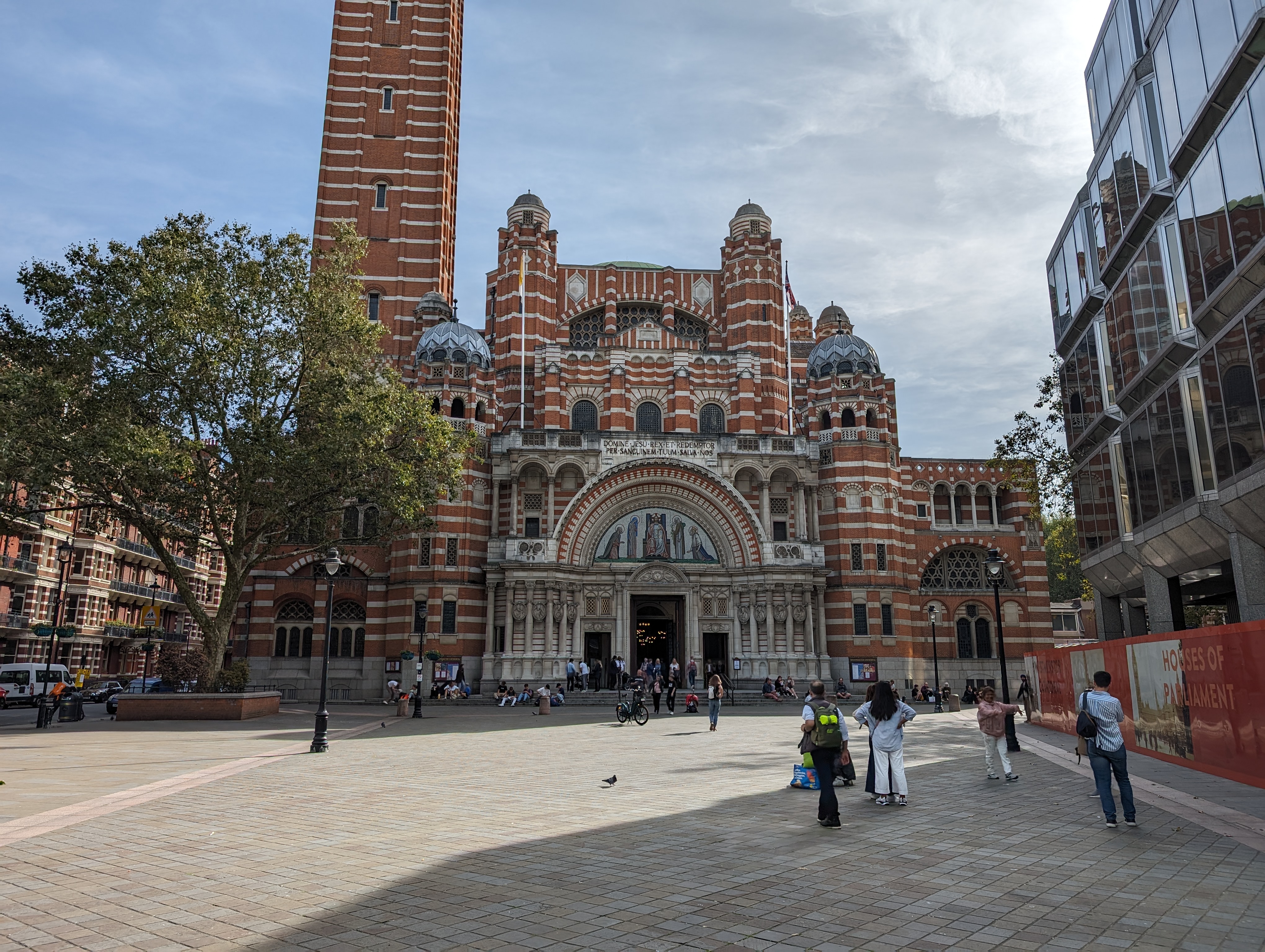


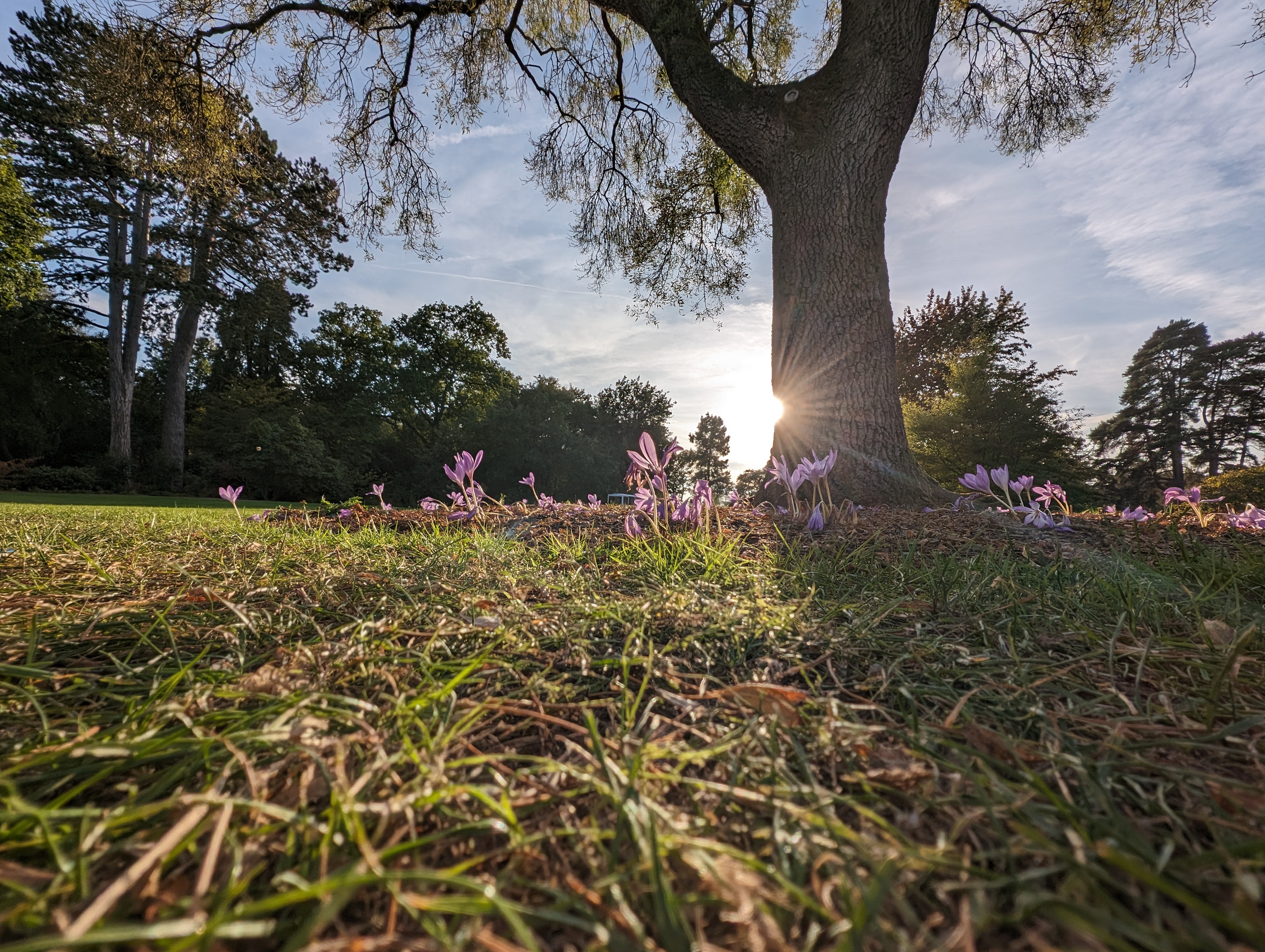
Ultra-wide
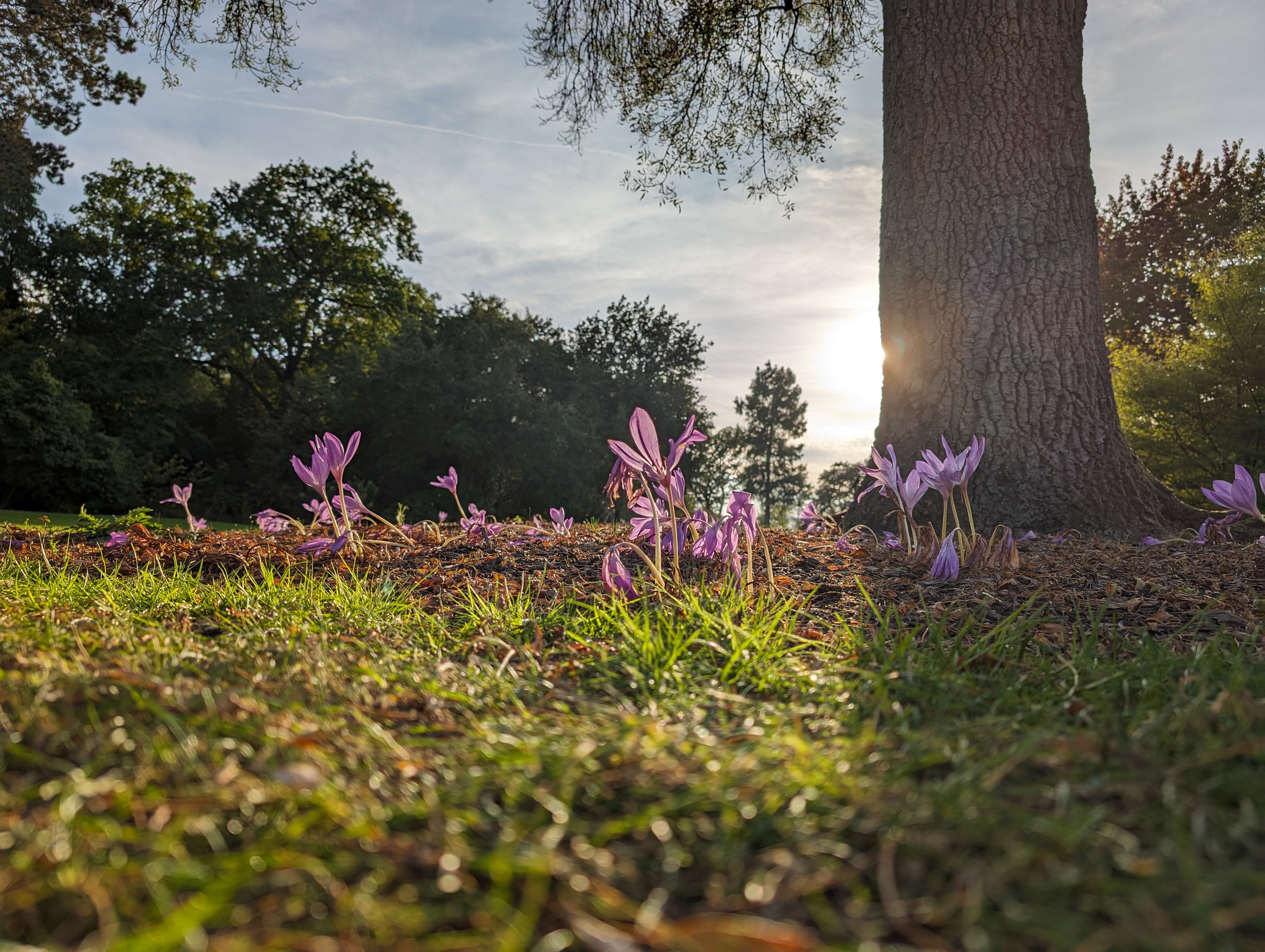
Main camera
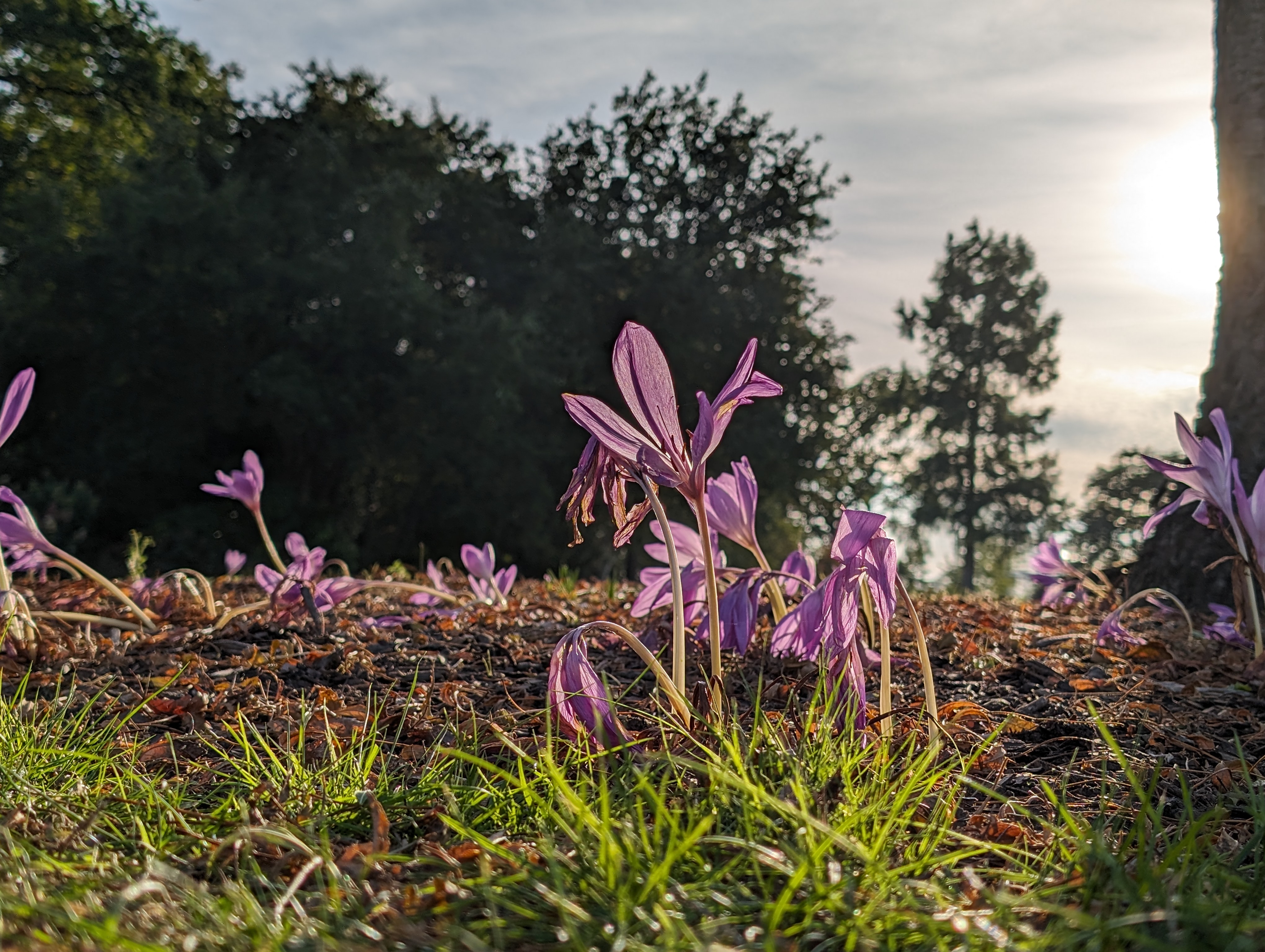
2x zoom

8x zoom
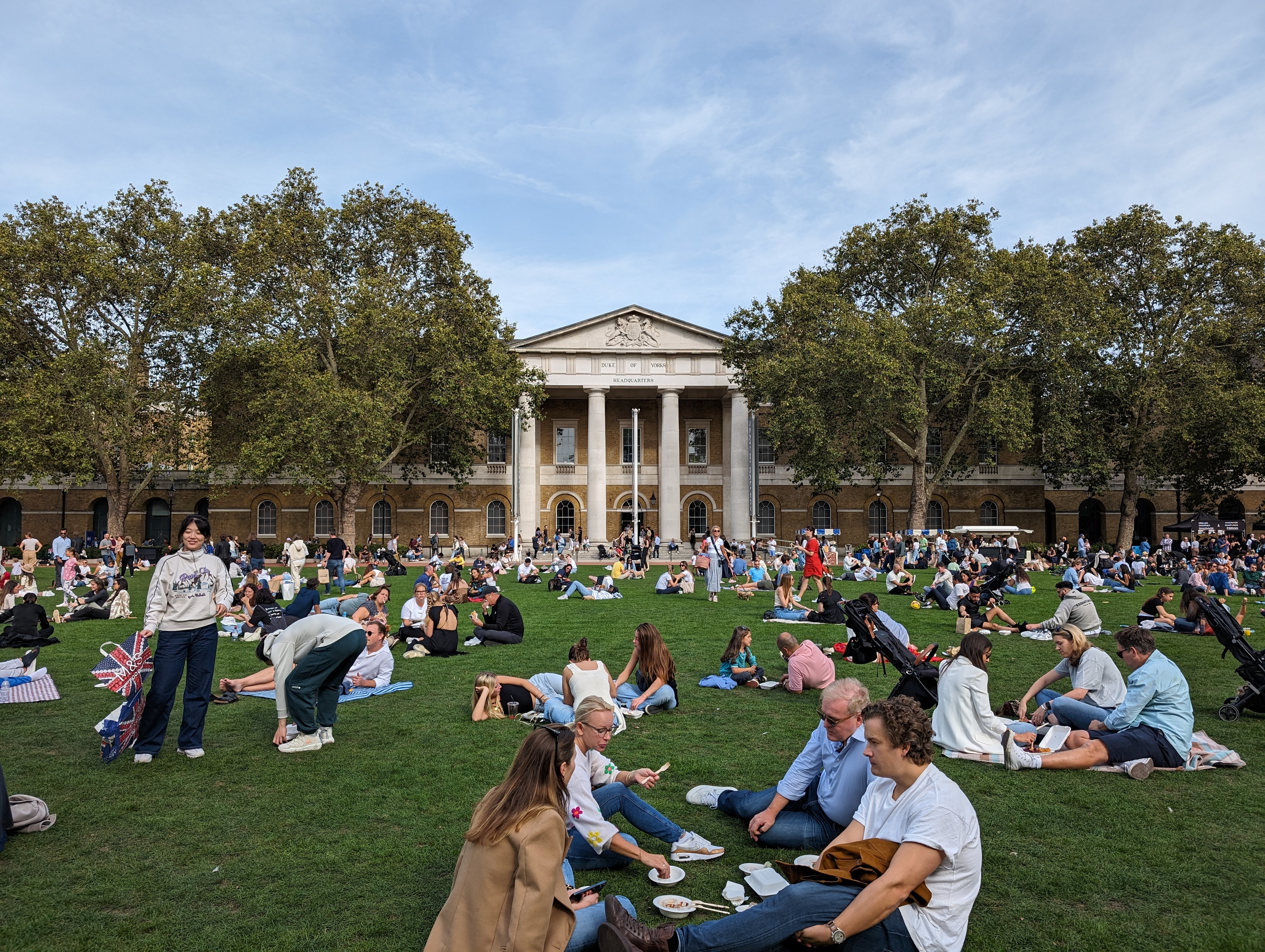
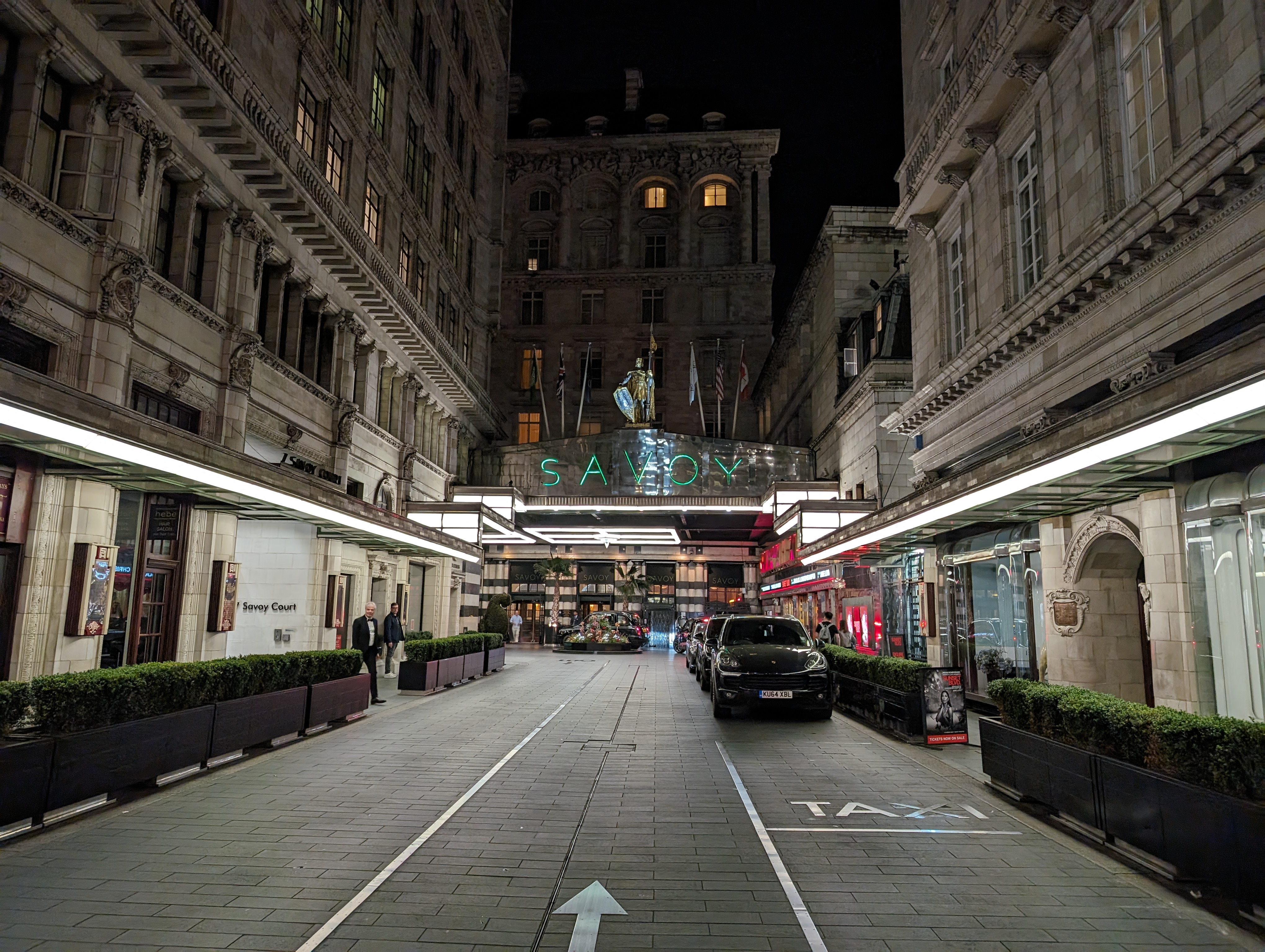
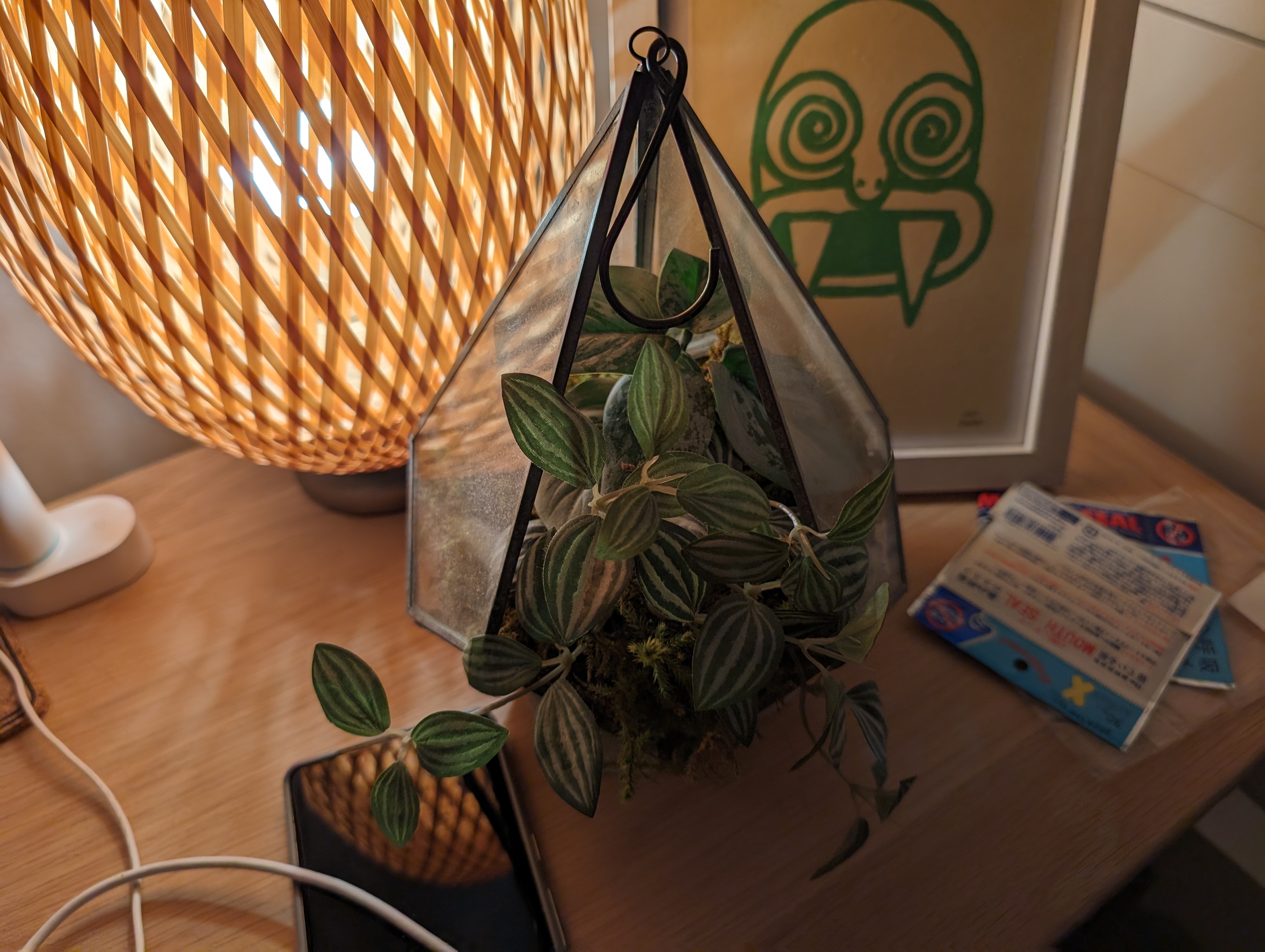

Portrait mode on main camera

Front camera

Portrait mode on front camera
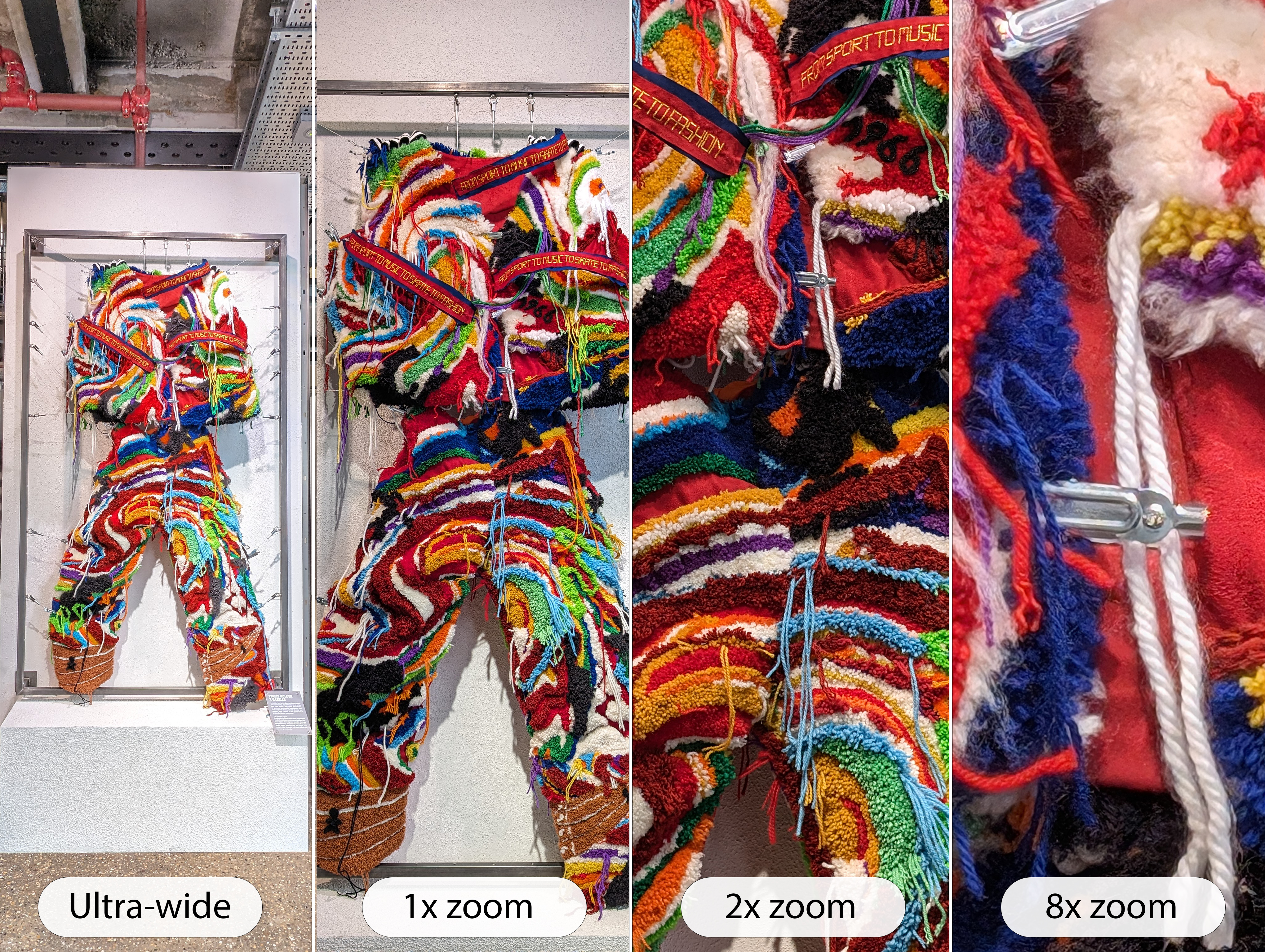
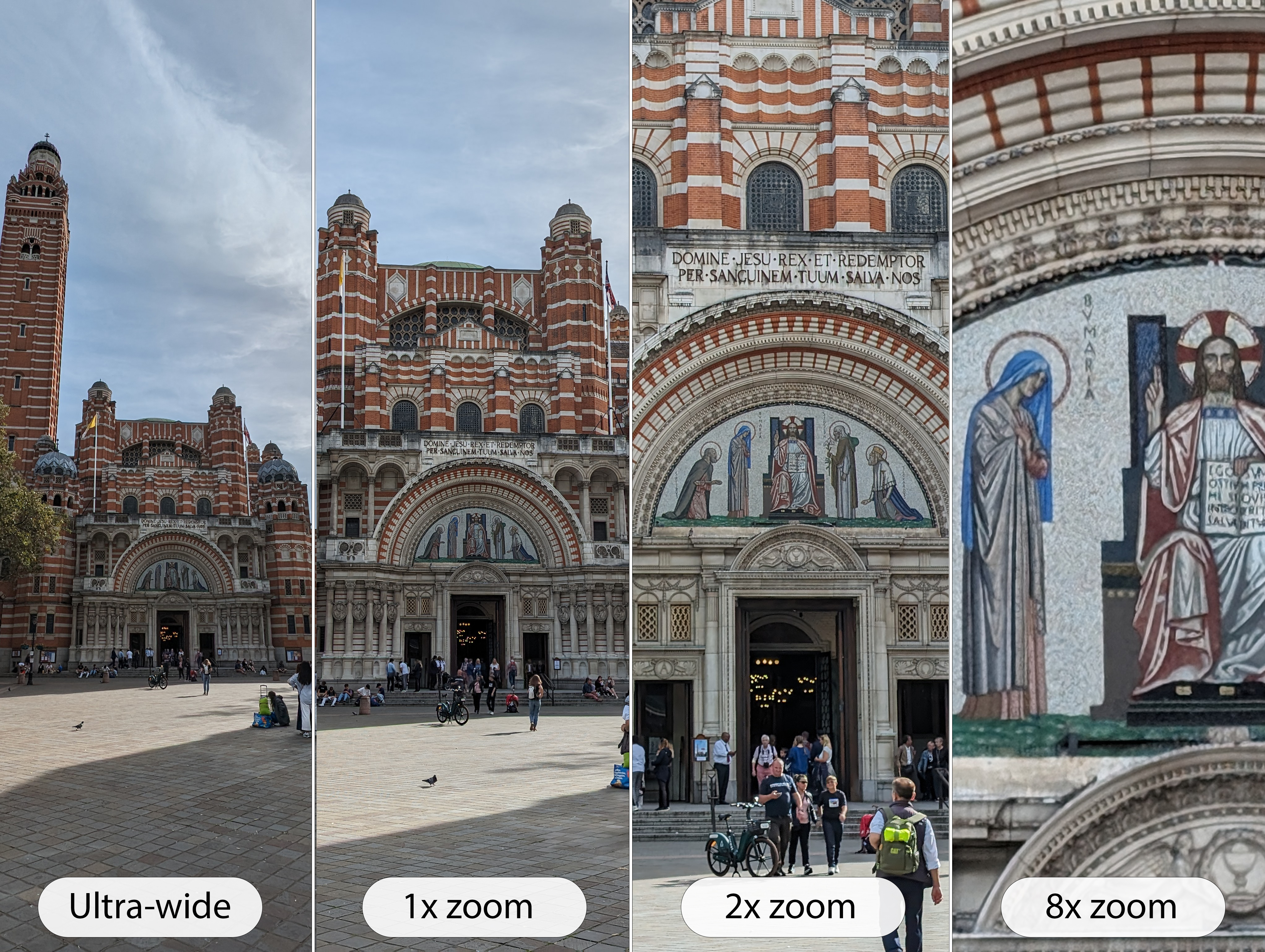
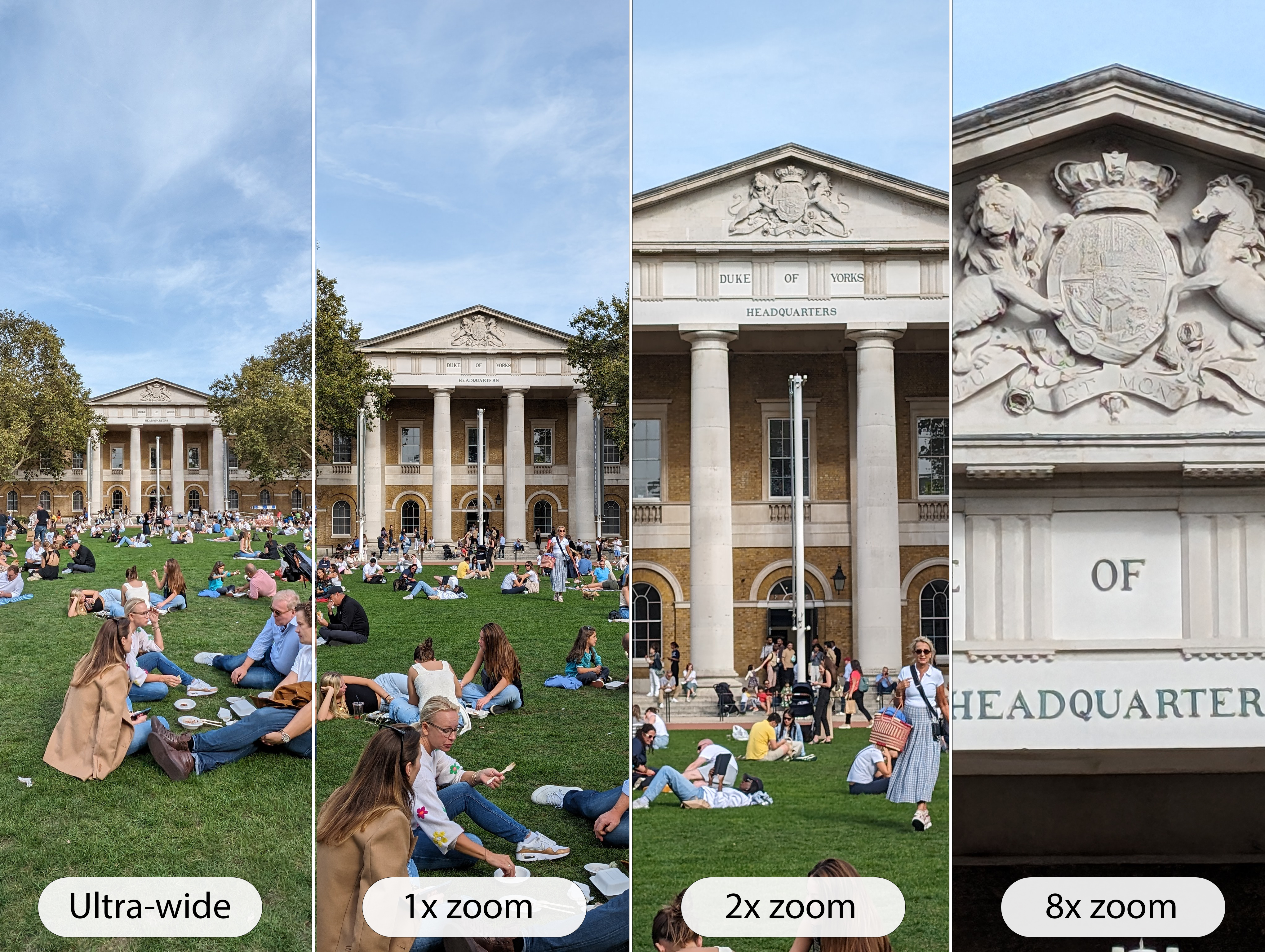

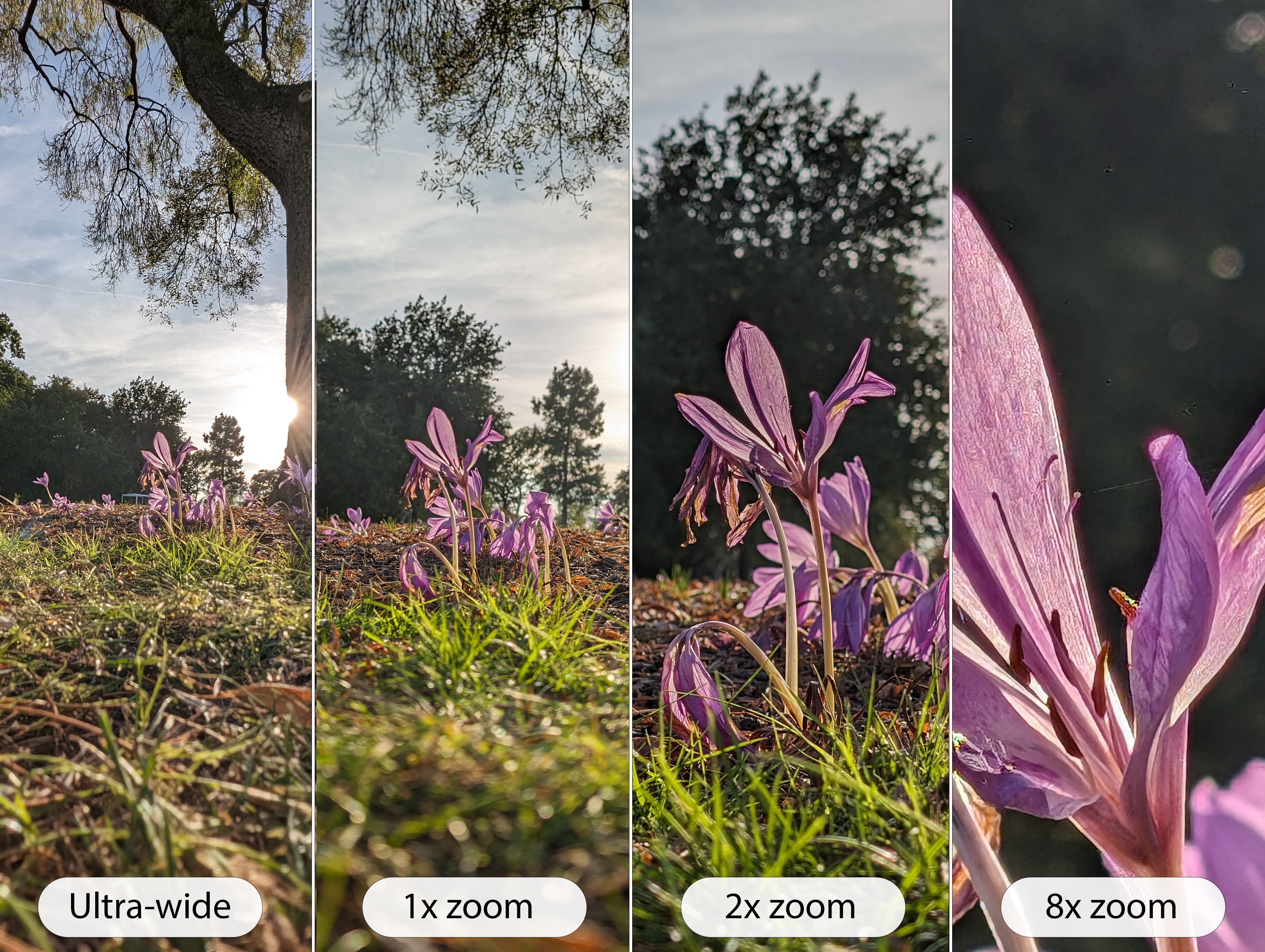
Add in the fact that the Pixel 8 has the newer Tensor G3 chip, with its superior image processing power, and you have an all-round camera hardware advantage for the newer and more expensive phone.
And really, that’s what this comparison comes down to, because the core software is the same. Google’s algorithms are well known for being some of the best in the industry, but they’re applied to both sides in this particular face-off.

Google Pixel 7a camera samples
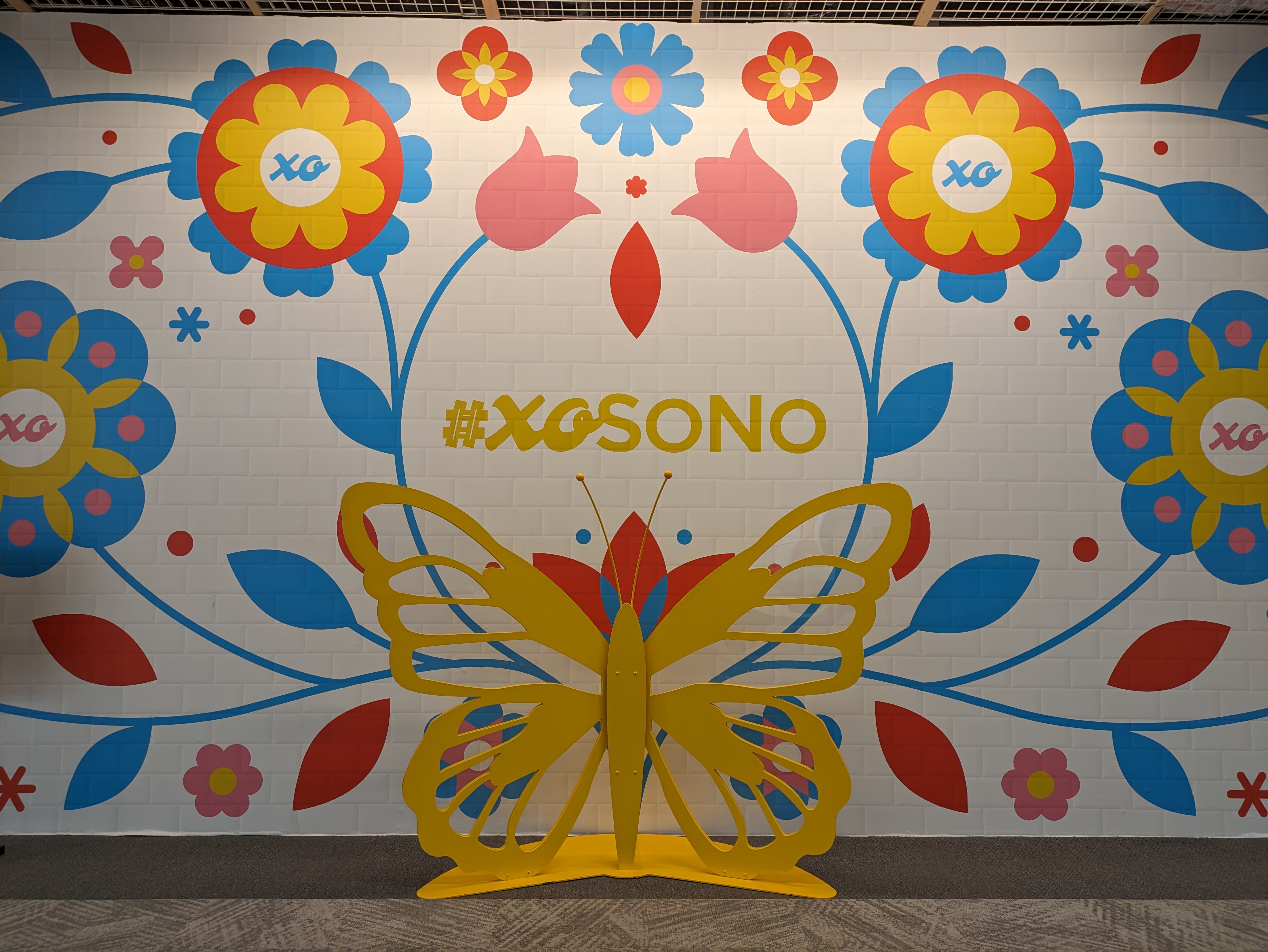
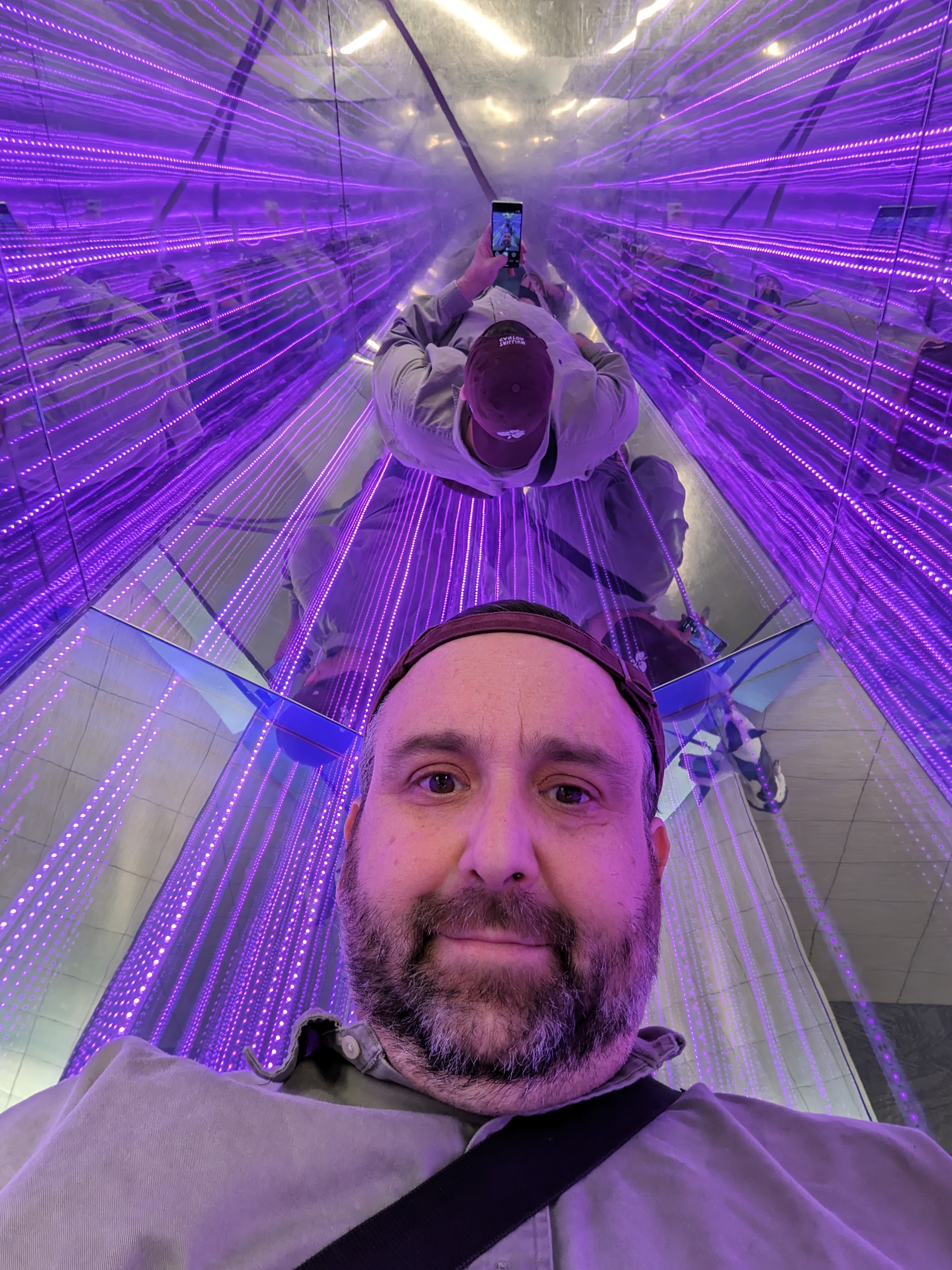
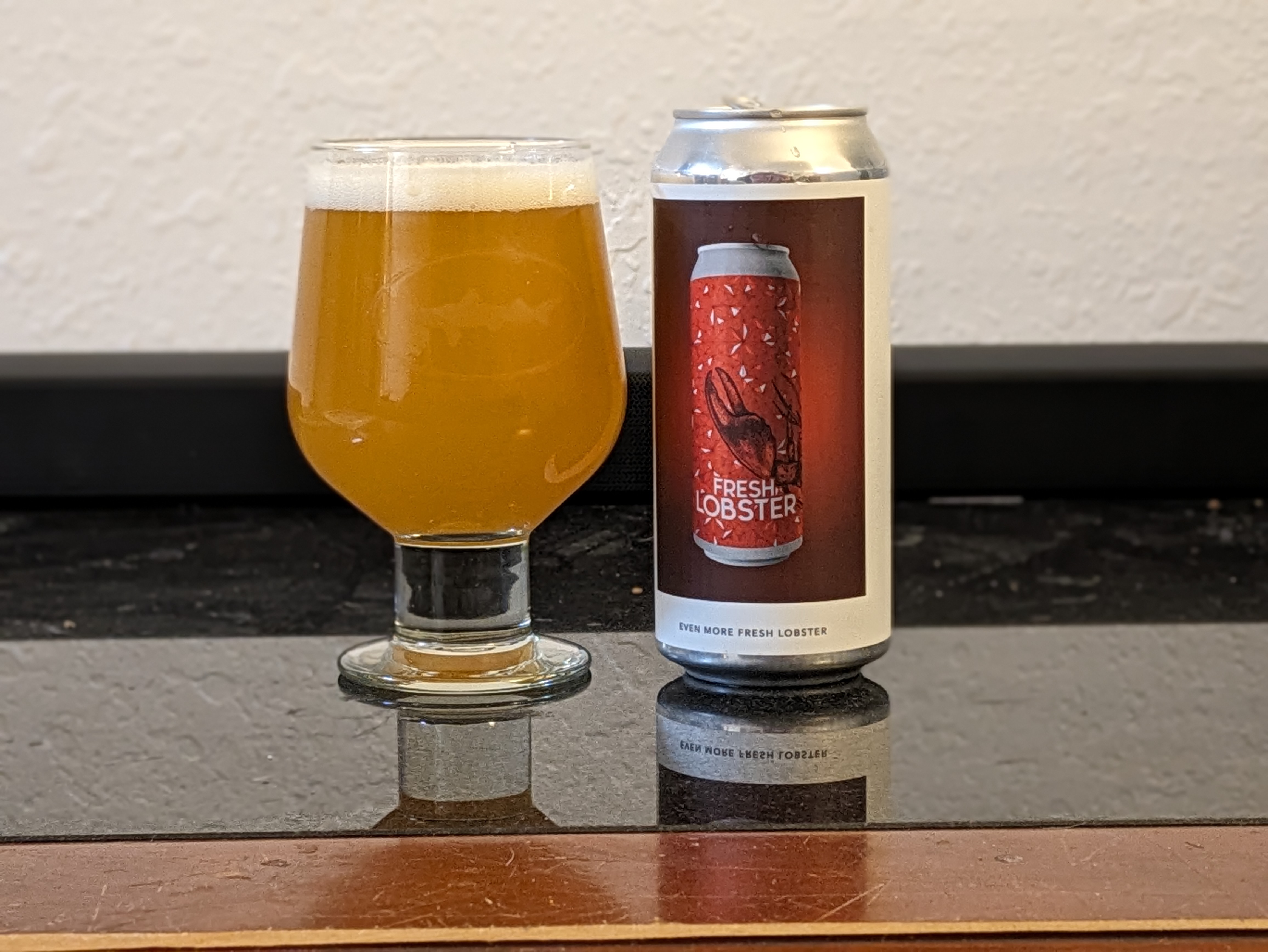
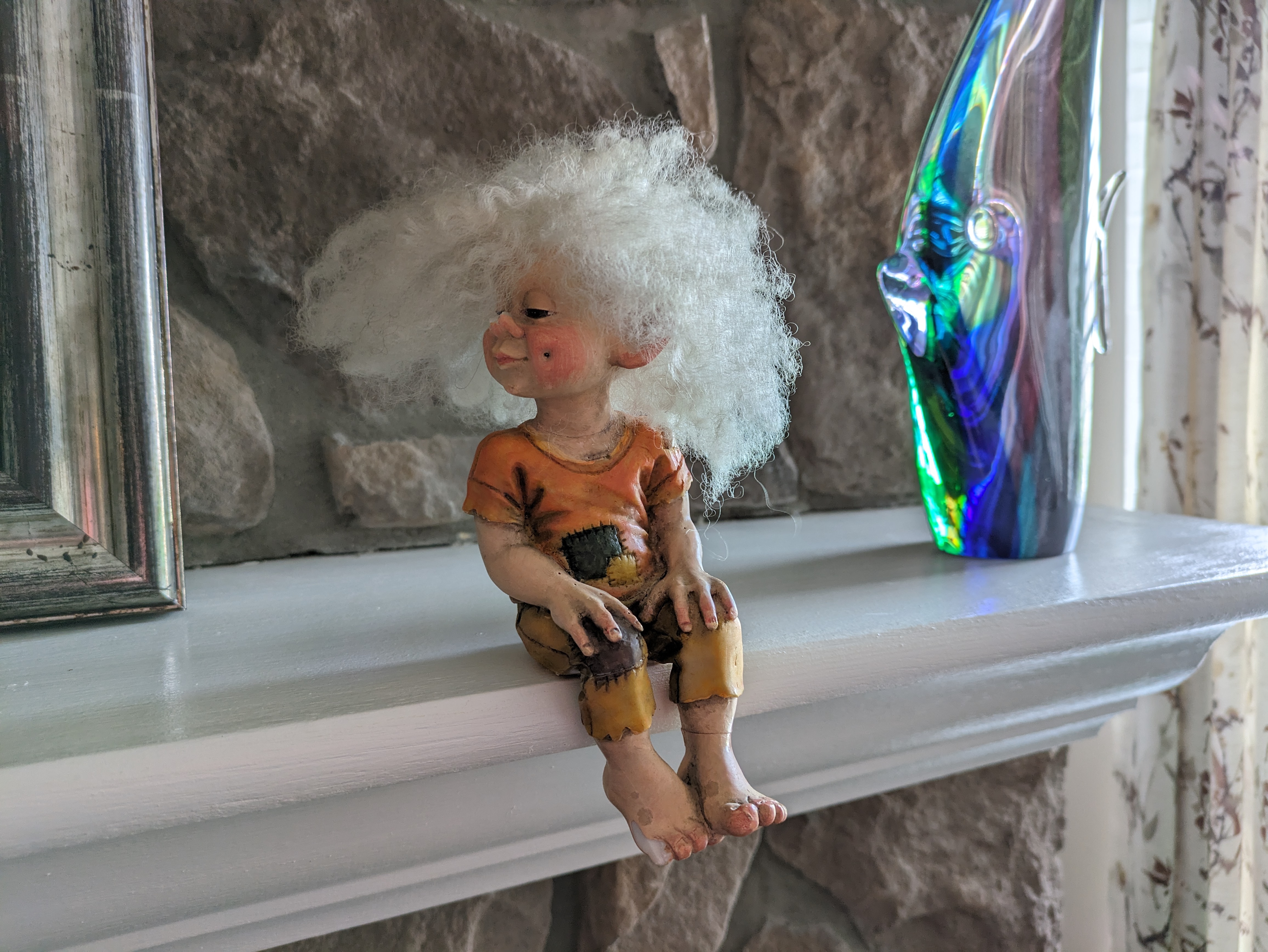
With that said, the Pixel 8 does sport some features that the Pixel 7a doesn’t. Best Take is currently exclusive to the Pixel 8 family, letting you manipulate group photos to ensure everyone is smiling.
Audio Magic Eraser, meanwhile, lets you remove unwanted background noise from videos shot on the Pixel 8.
Beyond these tricks and hardware differences, the Pixel 8 simply takes better pictures than the Pixel 7a in all scenarios. It’s a more powerful, more flexible photography tool that can even make a decent fist of 2x zoomed shots, despite lacking a dedicated telephoto option. The Pixel 7a’s zoomed shots are pretty poor by comparison.
Google Pixel 8 vs Pixel 7a: performance and software
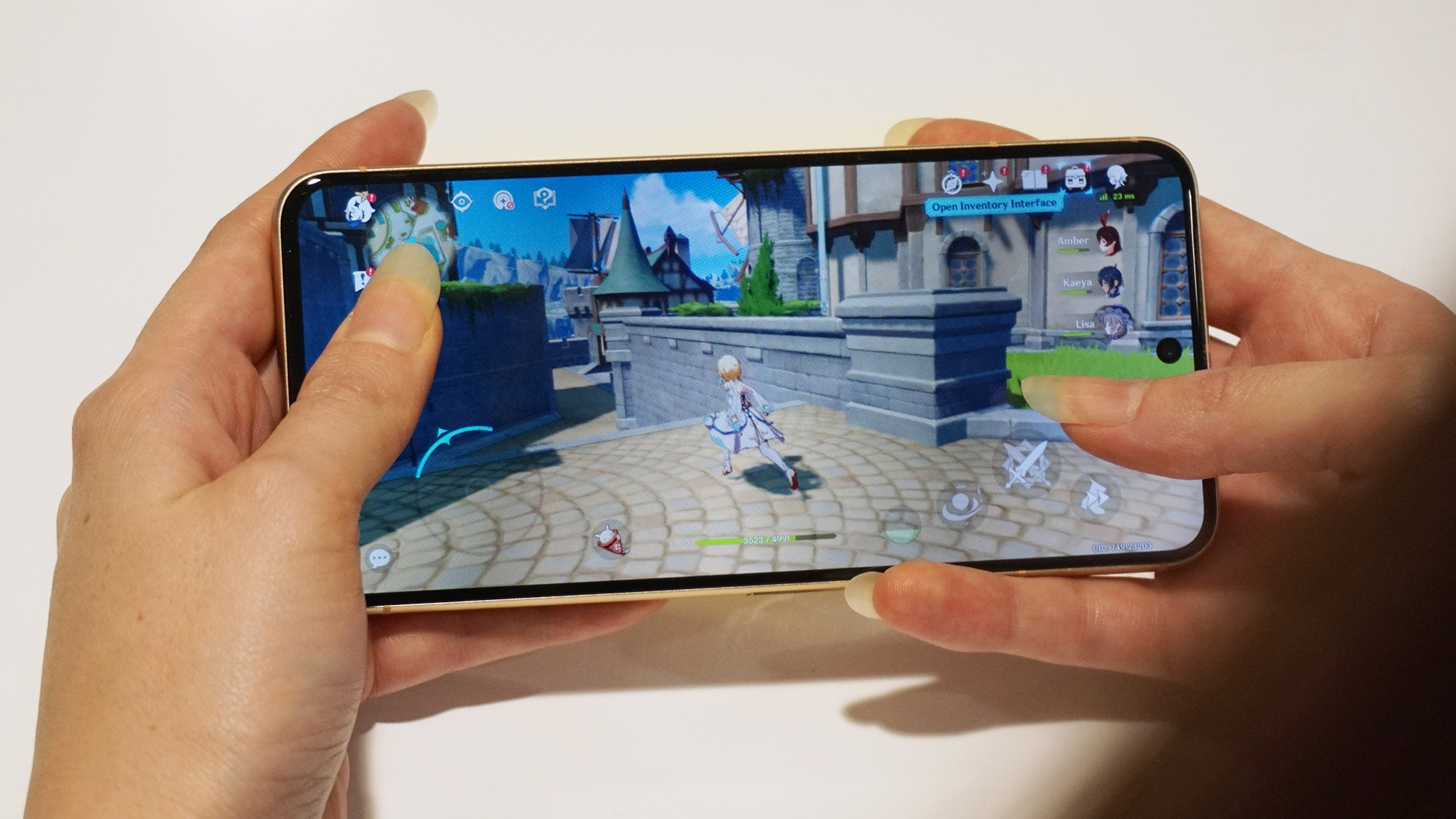
You’re looking at a straight-up generational upgrade from the Pixel 7a’s Google Tensor G2 chip to the Pixel 8’s Tensor G3. Both phones have 8GB of RAM as standard and come with the Titan M2 security coprocessor.
Really, it’s all about those two Tensor chips. There isn’t a huge leap between the two in raw performance, though the G3 is built using a more efficient 4-nanometer process (as compared to 5nm in the G2). It’s interesting that Google used the Tensor G1 as a point of comparison when announcing Tensor G3 – as sure an indication as any that these two phones are pretty close on performance.
Benchmarks show there to be a relatively modest increase in CPU and GPU output from the Tensor G3. You won’t notice a huge improvement in general smoothness or gaming performance when transitioning between the two phones, either. Both feel pretty slick, though of course the Pixel 8’s faster display will add to the impression of speed.
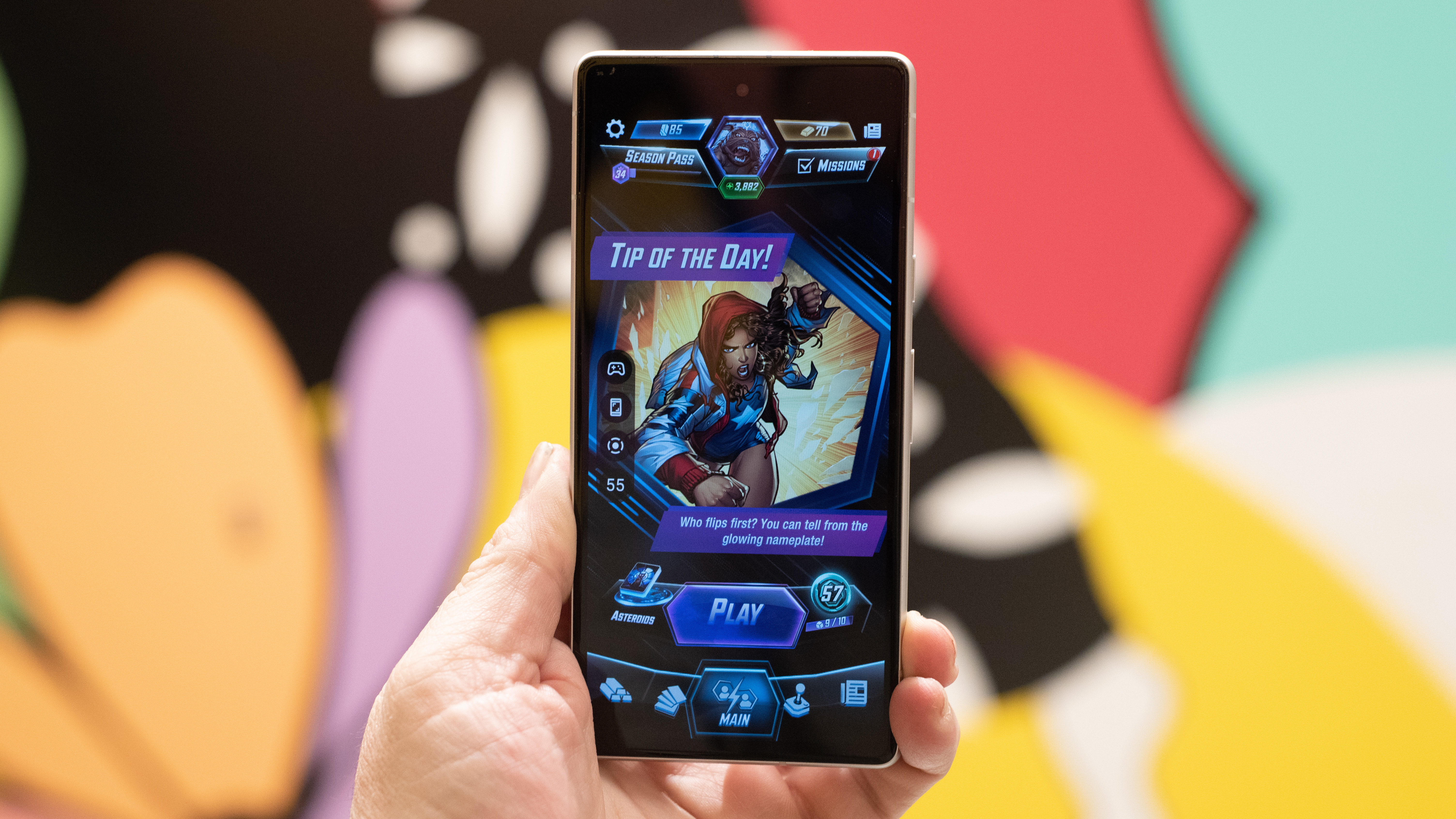
The main upgrade that the Tensor G3 provides is to AI performance, with Google estimating a 10x uptick in the complexity of its machine learning model. It’s simply faster and more efficient at all those little AI tricks, enabling the addition of features like the aforementioned Audio Magic Eraser when shooting video.
There’s even less difference when it comes to the software experience. Both phones run on Google’s clean and colourful Android 14 (the Pixel 7a’s coming via an update), which is one of the best mobile UIs around.
One huge advantage for the Pixel 8 here, though, is Google’s promise of software upgrades up to 2030. The Pixel 7a promise only extends to 2026.
We’re looking at the same software experience, then, but the Pixel 8 has way more of a future.
Google Pixel 8 vs Pixel 7a: battery
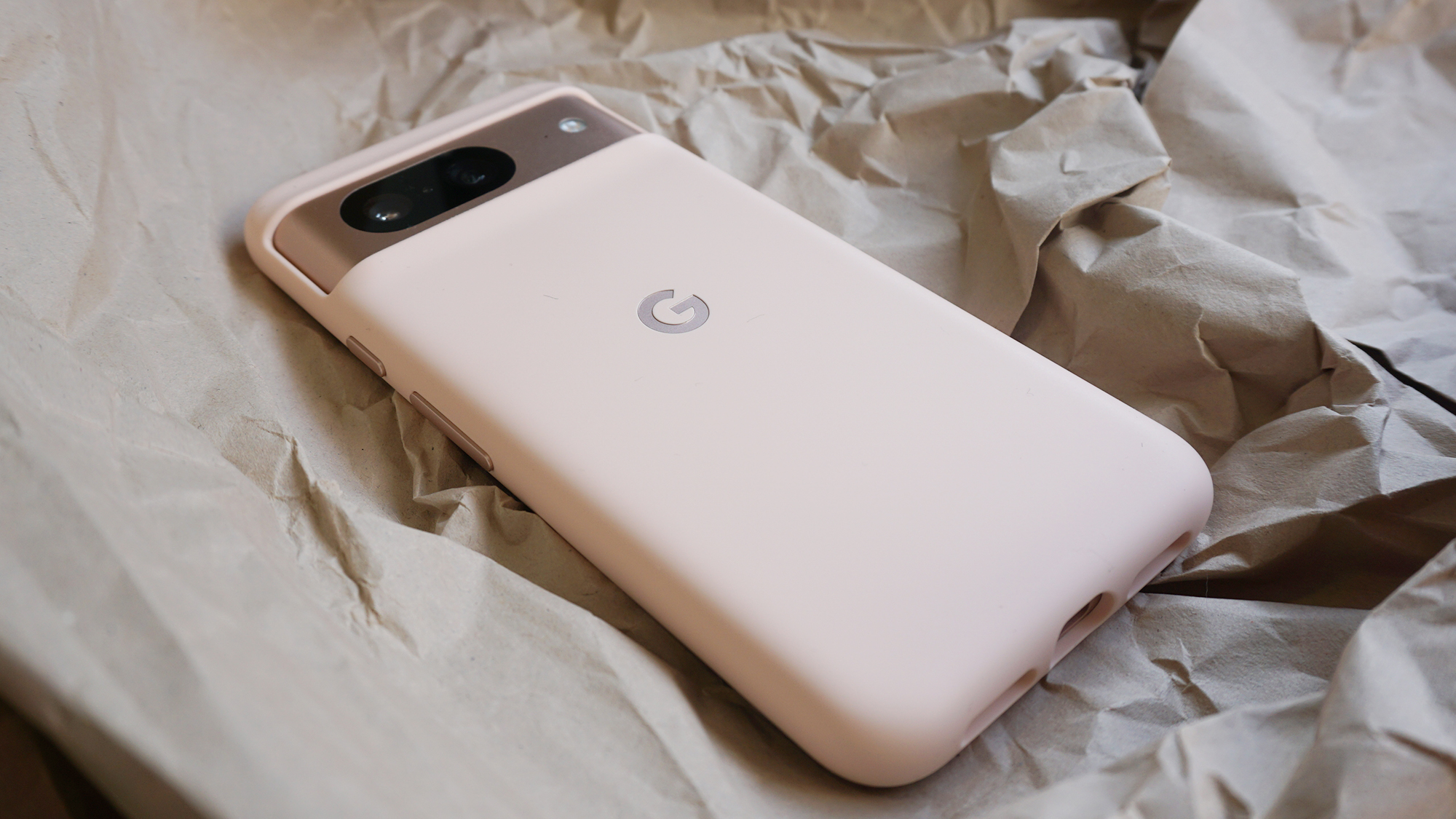
Despite being the smaller phone of the two, the Pixel 8 actually has a larger battery. At 4,575mAh, it has a slight capacity advantage over the 4,385mAh Pixel 7a cell.
It also has a slightly more efficient processor, although of course it does have to drive a faster, brighter, and thus more power-hungry display. Despite those caveats, however, the Pixel 8 clearly outperforms the Pixel 7a when it comes to stamina.
Indeed, battery performance was arguably the biggest criticism we highlighted in our Pixel 7a review. On more intensive days, we would frequently fail to make it through a full day without a recharge, or at least without seriously micro-managing our app usage.
That’s not to say that the battery was a star in our Pixel 8 review, but it can at least get you to bedtime under all but the most extreme scenarios.
Neither phone charges up particularly quickly, but again, the Pixel 8 takes the win. It can support up to 27W wired charging, provided you supply the charger (neither comes with one bundled in). The Pixel 7a, by comparison only goes up to 18W.
This results in a 0 to 50% charge time of around 30 minutes of the Pixel 8 and 45 minutes for the Pixel 7a, at least in our experience.
Both phones support wireless charging, but only the Pixel 8 can take advantage of 18W wireless charging via the Pixel Stand accessory (sold separately).
Google Pixel 8 vs Pixel 7a: verdict
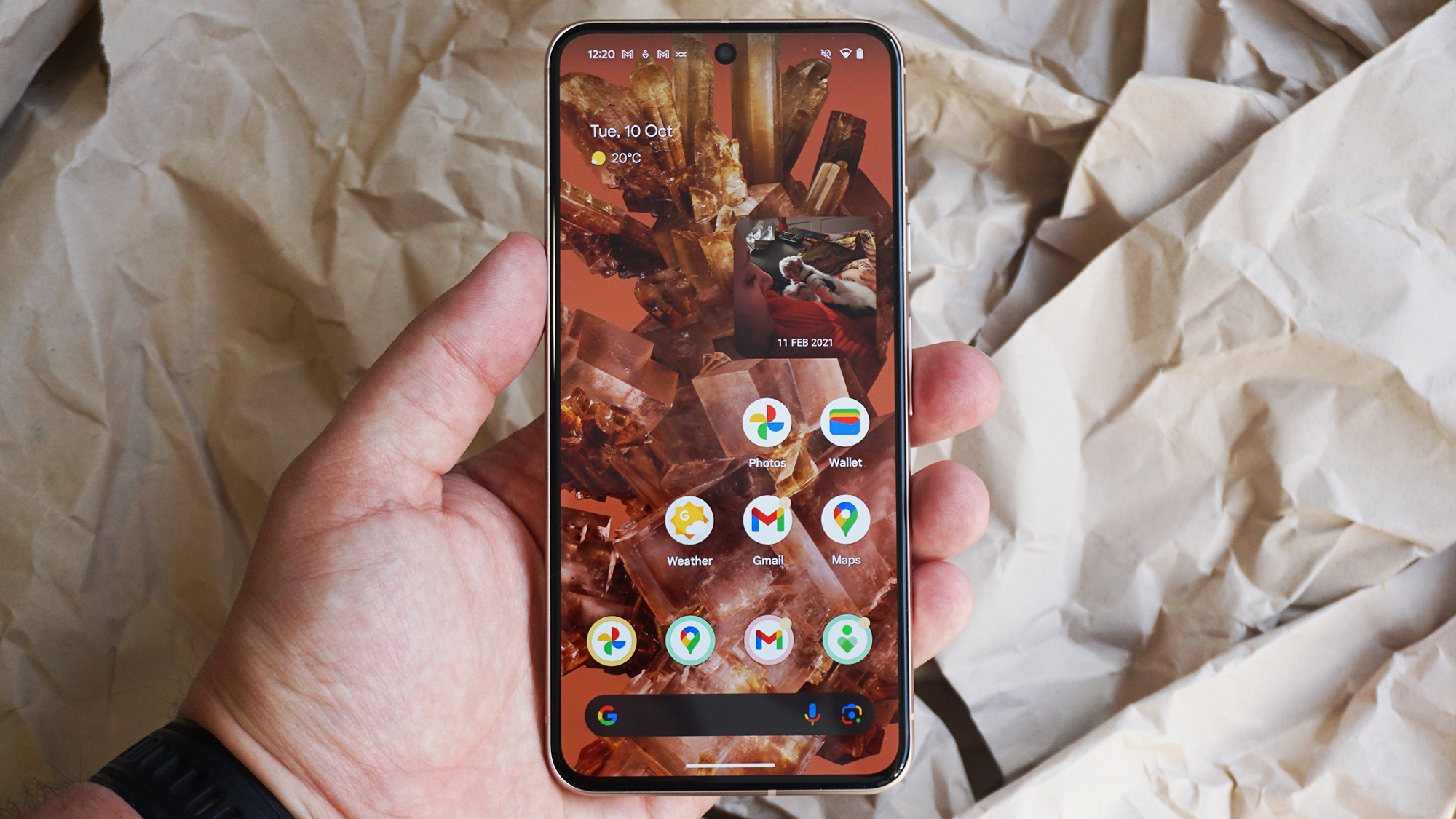
There’s quite a big price difference between the Pixel 8 and Pixel 7a. Considering they look and perform quite similarly, and run on identical software, that might lead many to think that the Pixel 7a is the better buy here.
However, all those subtle differences add up. The Pixel 8 is better built, has a faster and brighter display, a way better and more flexible camera system. And its battery will actually last you through a full day of heavy usage, unlike the Pixel 7a.
Then there’s the noteworthy fact that the Pixel 8 will receive Android updates for four years longer than the Pixel 7a.
In other words, despite the many superficial similarities, the Pixel 8 is a much better phone than the Pixel 7a. Unless you really are strapped for cash it’s the better buy, both now and for the future.
For more phone showdowns, check out the Google Pixel 8 vs iPhone 15 Pro Max, Google Pixel 8 vs Google Pixel 7, Google Pixel 8 vs iPhone 15 Pro and Google Pixel 8 vs Samsung Galaxy S23.

Jon is a freelance journalist who has been covering tech since the dawn of the smartphone era. Besides TechRadar, his words and pictures have appeared in The Telegraph, ShortList, Tech Advisor, Trusted Reviews, Expert Reviews, and more. He largely covers consumer technology, with a particular focus on smartphones and tablets. However, he's also been known to dabble in the worlds of entertainment and video games.